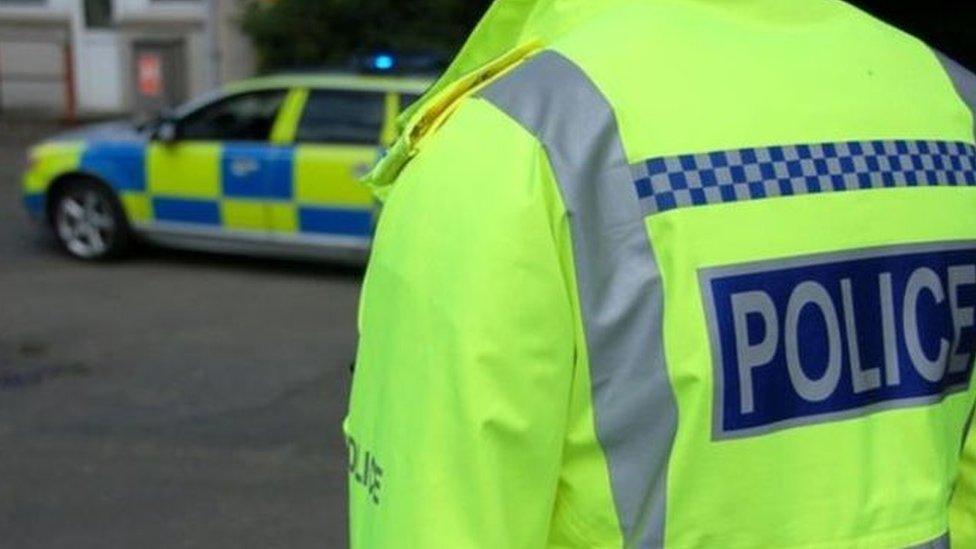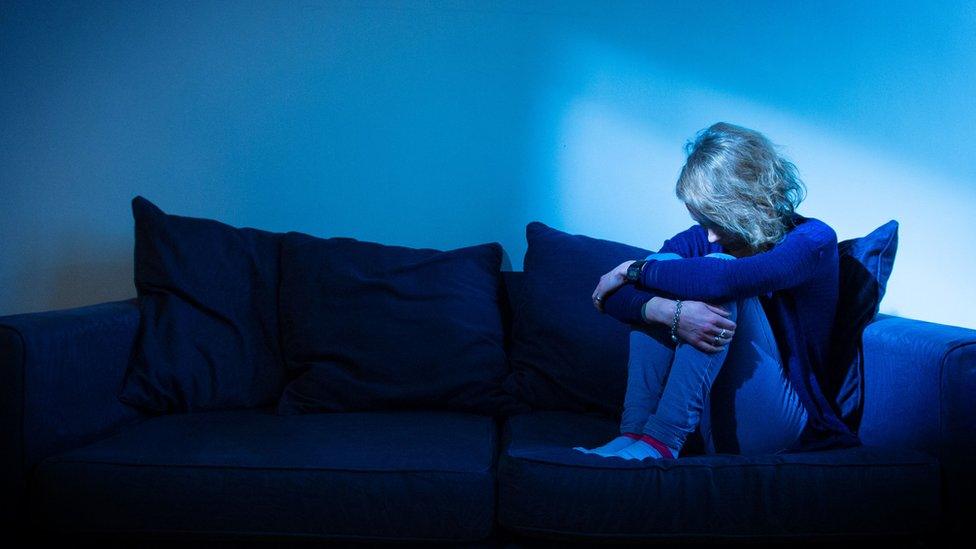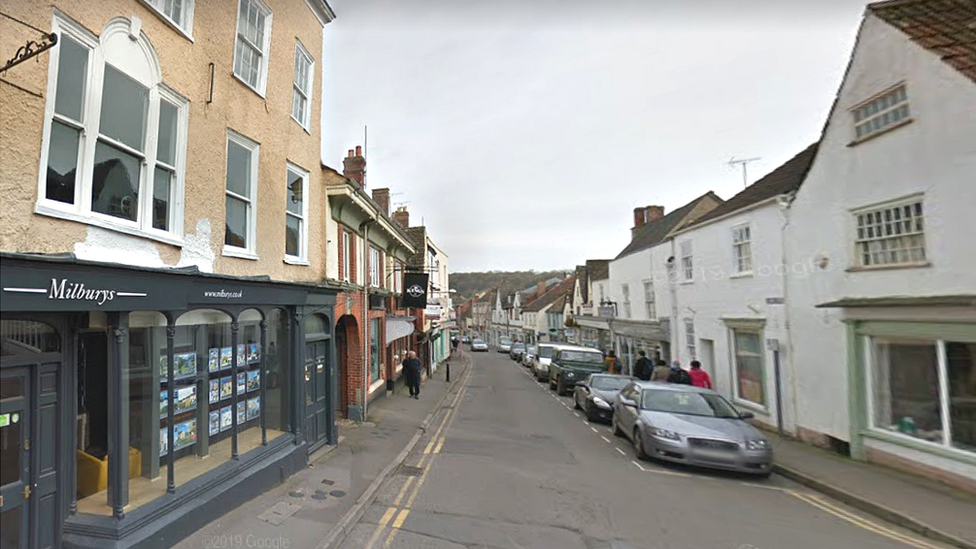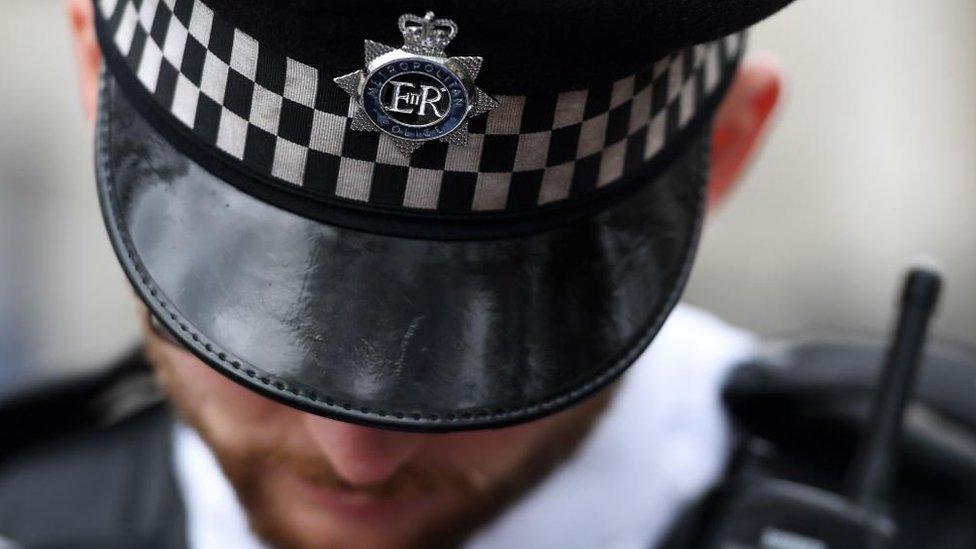Gloucestershire Police to cut back on attending mental health calls
- Published

The Gloucestershire constabulary is the first to follow the Met's new scheme
Police in Gloucestershire are set to reduce the number of mental health calls they respond to.
The force will take part in a national scheme that involves officers only attending mental health calls where there is a risk to life or of serious harm.
It is the first to adopt the scheme, set up by the Met Police.
Mental health charities have raised concerns the new approach would leave the most vulnerable at risk.
Gloucestershire's Police and Crime Commissioner (PCC), Chris Nelson, says mental health calls takes up "many thousands of hours" of officers' time, which should be "focussed on tackling serious and organised crime".
The force said there was no set timeframe for when the policy would be rolled out.
The Met Police's plan to stop attending emergency mental health incidents is "potentially alarming", a former inspector of constabulary has said.
From September, Met officers will only attend mental health 999 calls where there is an "immediate threat to life".
'Right Care, Right Person'
Called "Right Care, Right Person", the national scheme is based on one launched by Humberside Constabulary in 2020.
Since making the changes, the force has recorded the highest arrest and crime detection rates in the country.
London's Met Police is set to launch its scheme in September.

Mental health charities have raised concerns the new approach would leave the most vulnerable at risk
Under the scheme, police are no longer routinely required to attend requests such as welfare checks or find missing people with mental health issues and transporting mental health patients to and from hospital, unless there is a risk to life or of serious harm.
Mr Nelson said in Gloucestershire, police were likely to go above the minimum requirements and there would not be a "dramatic cut off" of what it does now.
He said though, as a result of this move, other partners such as those in social care, mental health teams and the NHS, would need to "do more".
"We often are the service of last resort when other services, due to cuts, have effectively pushed the tasks towards the police who have picked up the baton and run with it," he explained.
A 2019 report showed 76% of all calls made to Gloucestershire Constabulary were not crime-related, including reports of missing people, road accidents and mental health incidents.
The National Police Chiefs' Council (NPCC) said police forces in England increasingly receive complex calls about "significant mental health crises and vulnerabilities", which has a "significant impact" on available resources.
Filling the gap
But both national and local charities have raised concerns about the new approach, claiming there is not enough capacity for other bodies to step in and take over from the police.
Andy Goddard, director of Cheltenham Samaritans, said it was important for police to work with other services to work out who will "fill the gap".
"I worry that people won't have people to support them," he explained.
"There are people out there with mental health issues and in crisis, and the last port of call for them is to call people like the police."
Mr Nelson said the force was already working with local health bodies ahead of the scheme's implementation.
South Western Ambulance Trust says it is "working closely" with the police to respond to patients in need of mental health support.
Gloucestershire Integrated Care Board, which oversees the NHS in the county, said it had a "long standing and strong collaborative relationship with Gloucestershire Police" and is already working with the force on the scheme.
In a statement, the constabulary said: "Effective partnership working must forge some collective challenge, as well as support, if public service is to change.
"To achieve this we will be working to National Police Chiefs' Council guidance, and collaborating with our partners and regulators, such as the Integrated care board and Care Quality Commission to spearhead this change."

Follow BBC West on Facebook, external, Twitter, external and Instagram, external. Send your story ideas to: bristol@bbc.co.uk , external
- Published5 June 2023

- Published29 May 2023
